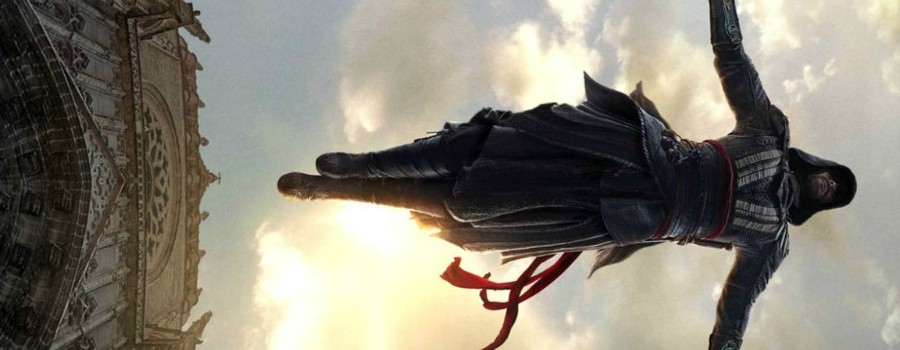There are a lot of accusations to be levied at the Justin Kurzel-directed and Michael Fassbender-fronted take on Ubisoft’s popular historical action franchise. You could call it a messy hodgepodge of video game branding masquerading as storytelling. You could call it the latest victim of Rogue One’s box office dominance. You could call it unlikely to break through the barricades of negative sentiment that dogs all video game adaptations. However, in its own way, it might actually be a perfect reflection of its source material. Assassin’s Creed isn’t without its moments but the whole affair is pulled down by some pretty serious flaws.
A loose-retread of the plot of the first game, Fassbender plays death-row inmate Callum Lynch, who is whisked away from certain death by the immediately-sinister Abstergo corporation. Abstergo, a front for the modern incarnation of the Knights-Templar, want to mine Callum’s DNA using a machine called the Animus for knowledge hidden within the memories of his ancestor, a fearsome Spanish assassin by the name of Aguilar. This is in order to find the location of a mystical relic called the Apple of Eden that they hope to use to eradicate the existence of human violence.
Simple, really.

Jokes aside, it’s about as coherent as the plot of the games it’s based on. The central tension here comes from from the efforts of Sofia (Marion Cotillard), a scientist trying to help Callum “synchronize” with the Animus, and his understandable rejection of the abject insanity occurring around him. Both Cotillion and Fassbender seem to bite off more than they can chew here. They do their best to make it work but it’s telling when the moment that achieved the biggest response from the audience saw Fassbender’s character exclaim “What the fuck is going on!” to nobody in particular.
Like the early games in the series, Assassins’ Creed quickly settles into oscillating between two narratives: a modern day one and a historical one. However, disappointingly, the film’s subplots largely favor towards the former over the latter. There’s a little bit of everything here, but very little of it actually feels like it works: from Callum’s fellow inmates to the daddy issues that hang over both him and Sofia’s characteristics to the eugenics-inspired ravings of the film’s villain (Jeremy Irons). Iron’s performance here is pure camp, but he sells the suave megalomania of his character with such commitment it’s hard not to sit back and enjoy the show.

Despite all these shortcomings, I’d be lying if I denied having fun during the sequences where Callum relives the memories of Aguilar. Even if Aguilar himself proves less of a character and more of a merciless killing machine each set piece sequence with him proves a visual showpiece that’s impressive at first glance and thrilling to watch unfold.
The film arguably keeps things too simple here: quickly establishing a situation, and then letting Aguilar fight or run his way out of it in the coolest way possible. Part of this comes from the score – which ratchets up the impact of these scenes – and the color grading, which helps the film pack a visual punch where it might not have otherwise, even if it occasionally trips over itself and becomes difficult to see the action.
The finely-choreographed fight sequences are, without a doubt, this film’s strongest asset. Which makes it all the more frustrating whenever they cut back to the modern day mid-fight and disrupt their own impact.
The strange thing is, like its interactive inspiration, Assassin’s Creed ultimately comes across as a film desperately trying to say something and failing. You could list out all the mistakes – dull assassin characters, terribly executed modern day story, ham-fisted historical cameos, absurdly-convoluted mythology – and strengths – visually-rich historical backdrop – and find easy counterparts in Ubisoft’s own work.
Assassin’s Creed is shallow where it needs nuance, convoluted where it needs to be elegant. It’s a mess of a movie and perhaps a too true reflection of both the strengths and flaws of its source material for its own good.

